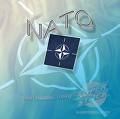NATO-Russian Co-operation on Syria Chemical Weapons?

Dr Ian Davis of NATO Watch sends news of today’s report in the Journal of Turkish Weekly suggesting that NATO and Russia have agreed to cooperate to facilitate Syria chemical disarmament.
Russia and NATO have agreed to fund and provide technical assistance to the operation by the Organization for the Prohibition of Chemical Weapons to bring about the chemical disarmament of Syria.
Emerging from an Ambassador-level session of the NATO-Russia Council in Brussels Friday, Russian Ambassador Alexander Grushko said ‘the sides have agreed to pull off the task in strict keeping with Resolution 2118 of the UN Security Council and the subsequent resolution of the OPCW.’ They had also agreed that the Syrian crisis can only be settled politically, through an all-embracing second Geneva conference on Syria, which should bring the Syrian government together with all rebel groups.
Grushko also said that the Russian side ‘has reminded NATO that it is vitally important to adhere to the UN ruling to deny support in whatever form to non-governmental Syrian groups that go for acquiring weapons of mass destruction.
He warned that support of this kind would blow in the sails of Jihadist groups including Al Qaeda that pursue Islamic rule in Syria and the rest of the Middle East.
This is exactly what Dr Davis and Andreas Persbo, Executive Director of VERTIC, called for in an opinion piece published on 13 September, which was read by a senior NATO official, who responded favourably in a private email on 17th September.
Dr Davis adds, “As far we can ascertain, no one else was calling for such a strategic alignment and our efforts to place the article in both The Guardian and New York Times fell on deaf ears”.
The news is not yet to be seen in the Western Press, but was announced yesterday in some detail by the Voice of Russia and the day before in its Indian edition.
Russia and NATO have agreed to fund and provide technical assistance to the chemical weapon disarmament process in Syria being conducted by the Organization for the Prohibition of Chemical Weapons (OPCW at an Ambassador-level session of the NATO-Russia Council in Brussels on Friday.
Disarmament personnel are expected to begin travelling to chemical-weapon facilities to disable equipment next week, according to an OPCW press release. Dr Davis ends:
“As we said in our earlier article, this cooperation could be a potential game changer. Not only does this agreement offer a tentative route map out of the mess in Syria but also a broader strategic, normative and political rapprochement between NATO and Russia, as well as a re-invigorated United Nations. We await further details of the NATO-Russia agreement with interest”.
NATO Watch: Promoting a more transparent and accountable NATO

